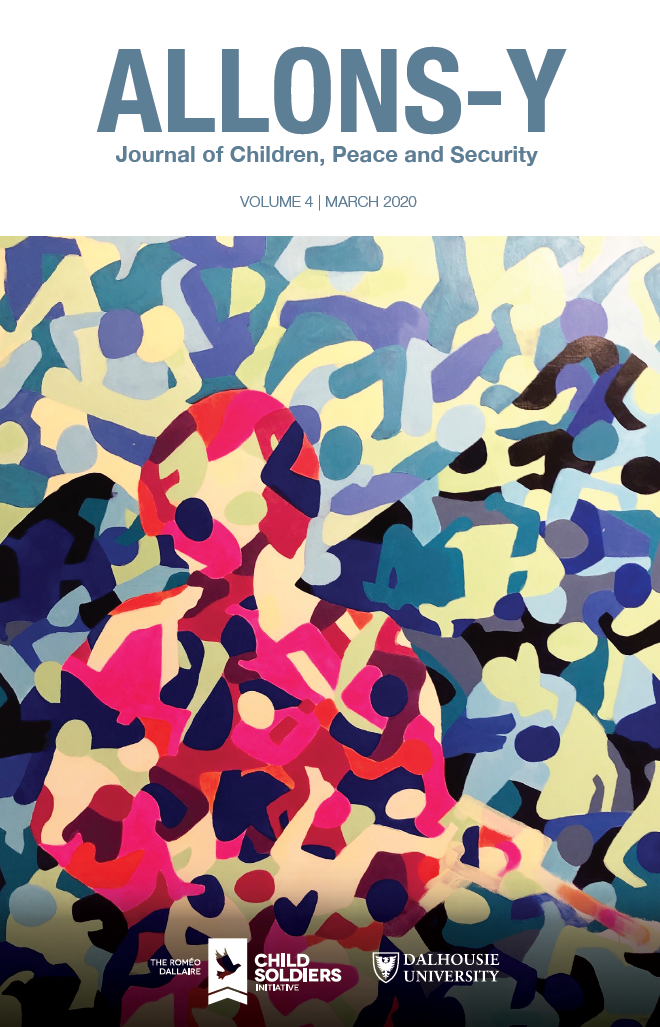Letter from the Editors
Abstract
“The Vancouver Principles pushes the international community boldly forward on issues related to peacekeeping and protecting children used as weapons of war and ensure peacekeepers are prepared.”
LGen Roméo Dallaire
The Vancouver Principles on Peacekeeping and the Prevention of the Recruitment and Use of Child Soldiers has rapidly been endorsed by states around the world, demonstrating the global desire for peacekeeping to address the use of children as soldiers. Co-created by the Roméo Dallaire Child Soldiers Initiative and the Canadian Government, the Vancouver Principles are a set of political commitments endorsed by states and are focused on “the need to prioritize and operationalize the prevention of the recruitment and use of child soldiers in areas of operations of peacekeeping, noting the critical role of such prevention to the achievement of peace and security, and taking into account the differential impact of conflict on girls and boys.” The seventeen Principles range from the prevention-oriented planning, to the inclusion of child protection focal points in command structures, to the commitment to share best practices among states.
For this volume of Allons-y, we asked contributors to focus on the implementation of the Vancouver Principles, with each article focussing on practical aspects of one of the principles and the current status of research in the area of focus. The contributors are researchers and practitioners in the field of Children, Peace and Security and offer their perspectives on current literature as well as field-based experiences in relation to the goals of the Vancouver Principles. The preface, commentary and six papers in this volume illustrate the complexities of contemporary armed conflict, the increasing and evolving impacts on children, and the importance of prevention.
The volume opens with Commentary by Valentina Falco and Alec Wargo who provide an overview of the UN protection framework for children affected by armed conflict and the accompanying monitoring mechanisms. Shelly Whitman and Catherine Baillie Abidi lay the foundation of the concept of prevention and the increasing need to take preventative actions to break cycles of armed conflict. Victoria Bryce and Dustin Johnson build on this foundation and further explore how prevention can be operationalized within security sector structures to dually enhance the protection of children and improve operational effectiveness. In relation to improving protection, Dustin Johnson and Allyssa Walsh explore the role of gender in recruitment prevention, emphasizing the gendered dimensions of recruitment and use of children, and the need to better understand how the gender of peacekeepers affects child protection. Laura Cleave and William Watkins offer insights into early warning systems and the opportunities to embed child-specific indicators as a measure to prevent or disrupt recruitment processes. Marion Laurence explores the function of monitoring and reporting grave violations of children‘s rights in light of the move towards better and more coordinated use of data in UN peacekeeping. And finally, Jo Becker examines the alarming trend of the detention, rather than the release and rehabilitation, of children associated with armed groups.
Given the unprecedented and increasing number of children living in conflict-affected areas, it is vital that the international community prioritizes children‘s rights and rallies toward building peaceful communities. The creation of the Vancouver Principles in 2017 has added vital momentum to this agenda, and with this and future issues of Allons-y we aim to contribute to this momentum with research, experiences, and practical guidance that will be critical to improving the protection of children during armed conflict and ending their recruitment and use as soldiers.





